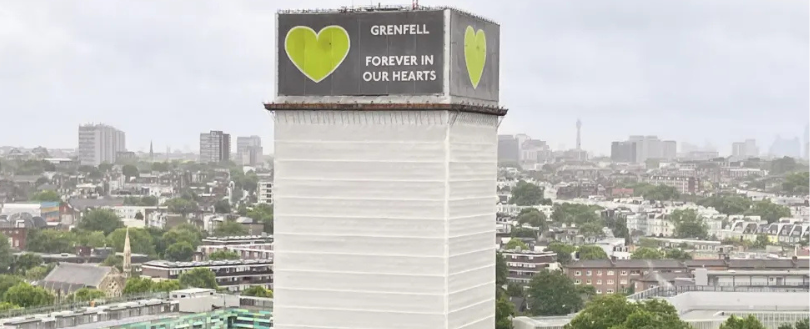
Fire Safety Laws Set to Commence in 2027 – A Decade After Grenfell
Like it? Share it!
08 July 2025
New fire safety legislation aimed at safeguarding residents in flats will begin rolling out in 2027, marking ten years since the Grenfell Tower tragedy.
The Welsh government announced that the forthcoming laws will clearly identify who is responsible for building safety and ensure those individuals or organisations are held to account. Residents will also be expected to play their part in reducing fire risks under the new Building Safety Bill.
Housing Secretary Jayne Bryant emphasised the importance of giving residents a voice, stating she wanted to ensure that “residents are heard and listened to.”
The legislation forms part of Wales' official response to the devastating fire at Grenfell Tower in London, which claimed 72 lives in June 2017. Initial proposals for these legal changes were put forward for consultation in 2021, ahead of the last Senedd election.
If approved by the Senedd, the bill will start coming into force from 2027. When asked about the delay, Bryant explained that the government was focused on delivering “meaningful change” and had taken time to consider the findings of various reviews and inquiries. “What we wanted to do is make sure we are getting this right,” she said.
Under the proposed law, buildings with flats, including converted houses, will need to have an “accountable person” who is legally responsible for safety. This may be the building’s owner or a designated company. Their responsibilities will include carrying out fire risk assessments, particularly in relation to cladding.
Officials stated that the bill is designed to establish “clear lines of accountability,” so that tenants and flat owners are aware of who is legally responsible for safety.
Reflecting on the lessons from the Grenfell inquiries, Bryant noted that “people didn’t feel listened to and that they didn’t know who to go to,” underlining the need for clarity in responsibility. “That’s why it’s so important we get this right and people know who is responsible, who they can go to,” she added.
Buildings will be categorised based on size, with high-rise blocks (at least 18m/60ft tall) falling into the strictest safety category. Bryant also pointed out that this approach would cover more buildings than the equivalent system in England.
Additional safety measures are also being introduced, including a ban on flammable cladding which will take effect in December.
However, concerns have been raised. Plaid Cymru’s housing spokesperson, Sian Gwenllian, warned that attention to the Building Safety Bill must not come at the expense of pressing remedial work still needed. Meanwhile, Welsh Conservative shadow housing secretary Laura Anne Jones highlighted that “a long way to go” remains in clarifying how local authorities and leaseholders will be supported with the costs of implementing these changes.
View the source.
Our eNews provides regular insight into industry trends, news headlines, and product and service information. For more articles like this Subscribe to our enews.
Related news
-
Record Rise in E-Bike and E-Scooter Fires Across London
28 January 2026
Related resources
-
Passenger Service Vehicle - Guidance Note
05 September 2023
